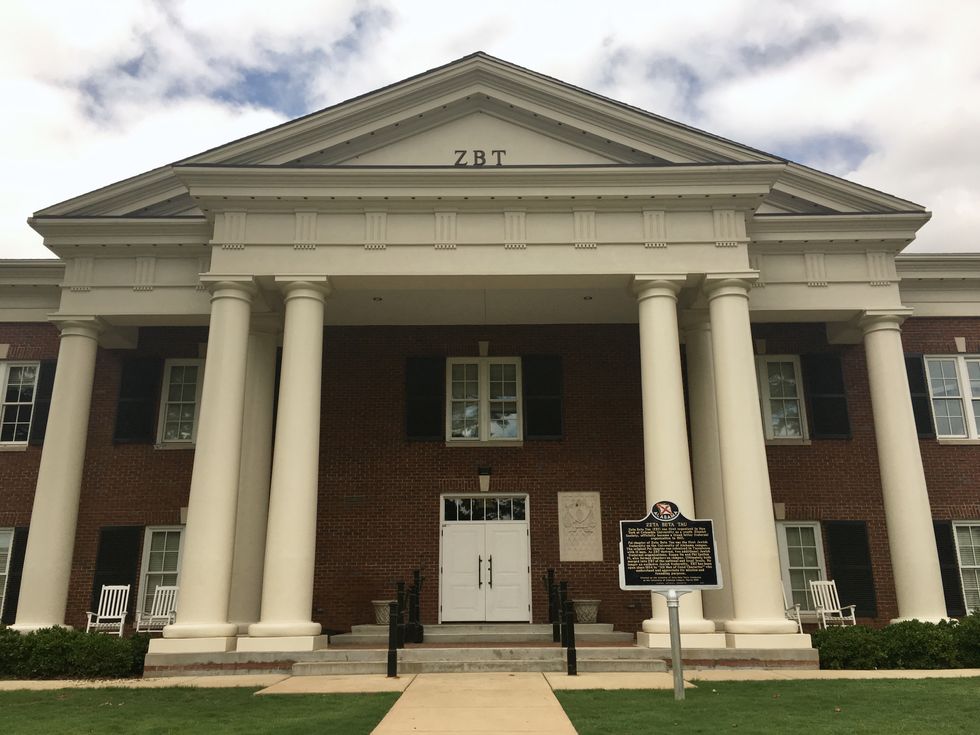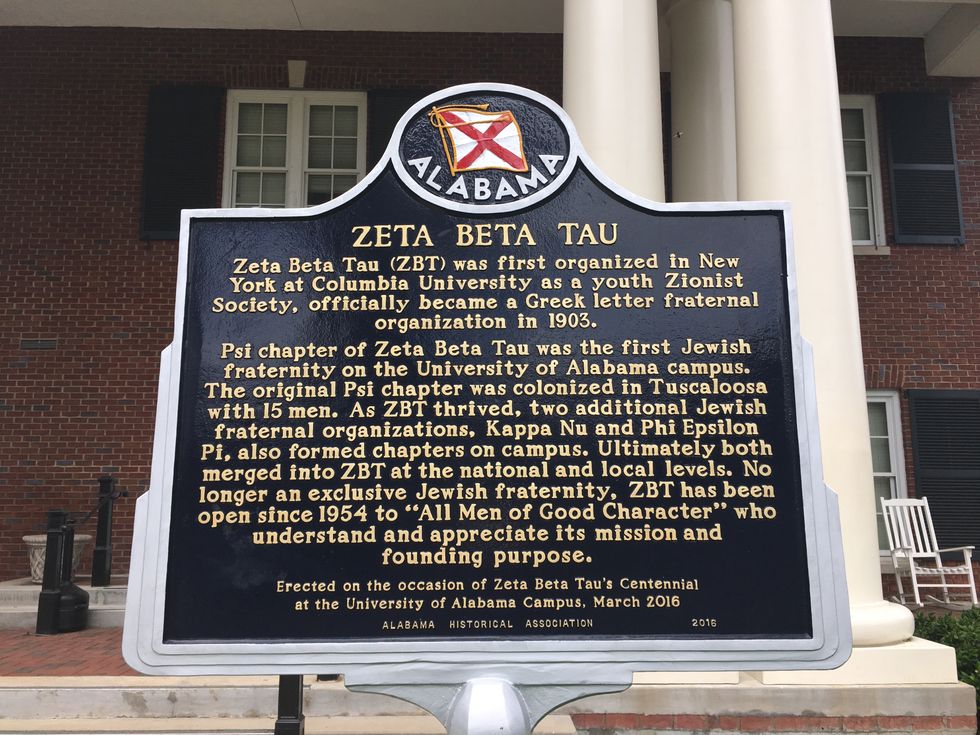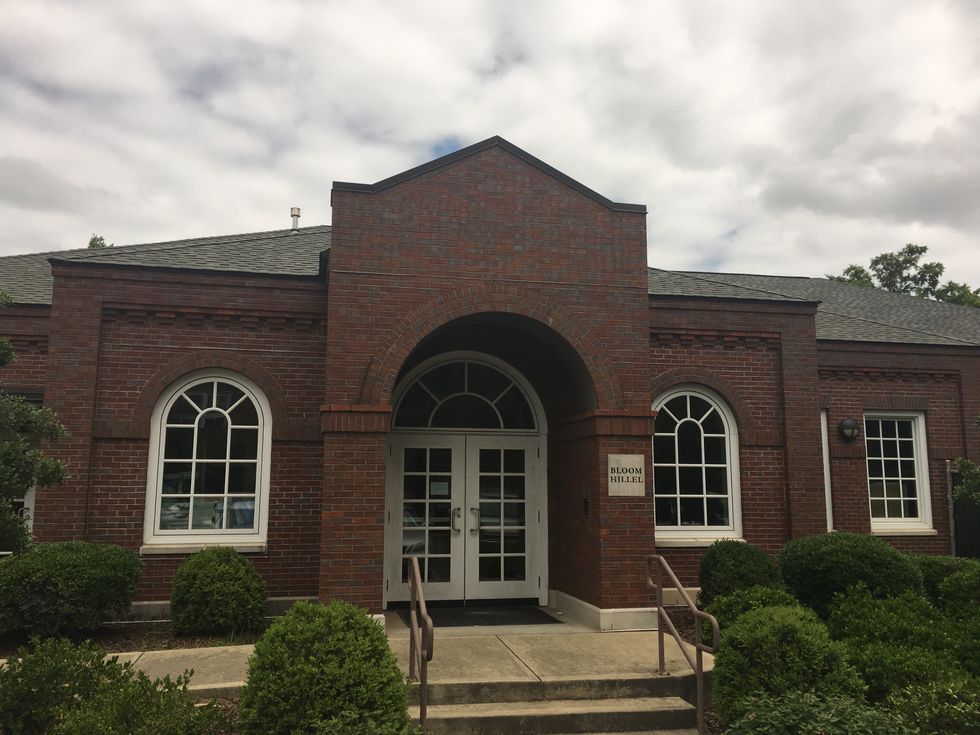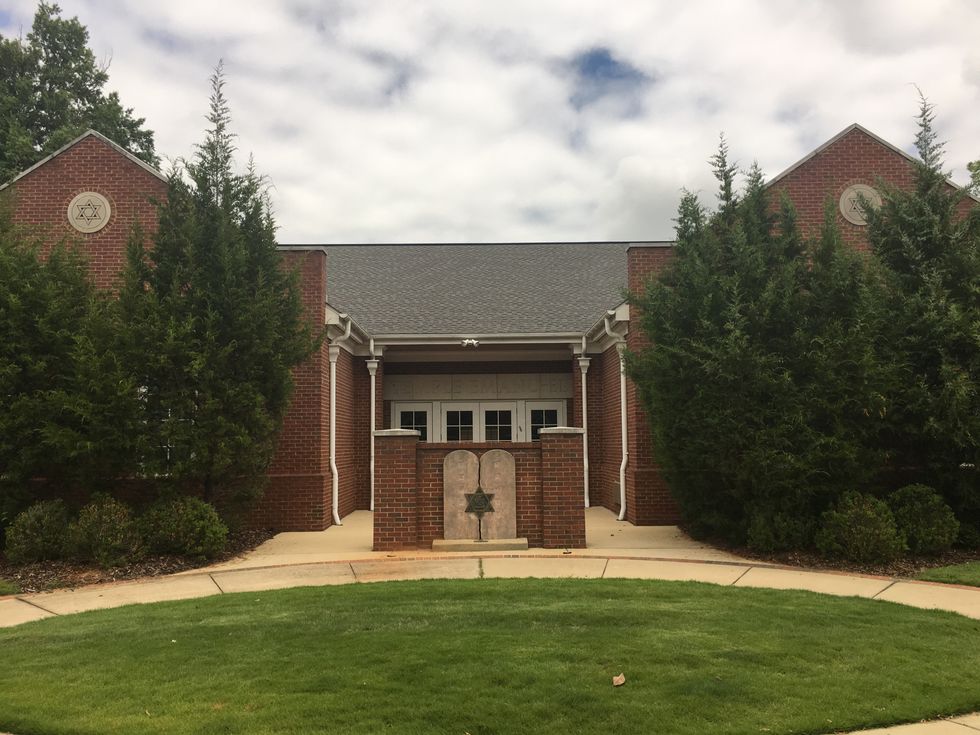Alex Koplin, a native of Macon, Georgia, remembers going to Hebrew school on Wednesdays and Torah study on Sunday mornings every week. He went to Jewish summer camps for 12 years and was raised in a conservative family in a small Jewish community.
Even though the Jewish population in Alabama may not be as large as in New York or California, he had no problem finding the Jewish community at the University of Alabama.
"When I came to visit during my senior year of high school, I knew some people in ZBT and a couple girls that were Jewish at Alabama," Koplin said. "I started to realize there were definitely a lot more Jewish people here than I thought there would be."
Koplin, 20, is a public relations major at the University of Alabama and a past-president of Zeta Beta Tau, a majority Jewish fraternity that has been on campus for more than 100 years. He said that even though the Jewish student population is small compared to other universities, it is larger than where he was raised. He appreciates that.
The University of Alabama consistently sets records for student enrollment every year. The growth of the student body, which topped 38,000 in 2017, has translated into an increase in the university's Jewish population, too. There are several spiritual and cultural organizations on campus that make it easy for Jewish students to find a comfort zone, including the Hillel organization, Chabad movement, and the Alpha Epsilon Pi and Zeta Beta Tau fraternities. None of these organizations require students to be Jewish to participate, but most are composed of Jewish students and faculty.
"The student population that's Jewish is more than the amount of Jewish people that I grew up with in my town, and since I've been here it's definitely grown," Koplin said. "I think it's important when you look at a big university and you're recruiting kids to have these kinds of organizations because you want everybody that is interested in coming to your university to feel like they are included. Whether that be religion, skin color, any cultural or political belief, there should be a place for everybody coming to a school like UA."
According to the national website, ZBT was the first exclusive Jewish fraternity ever founded in 1898, but since 1954 will "recruit and initiate men of good character, regardless of religion, race or creed." The UA chapter, established in 1916, has 115 members. Koplin said typically 80 percent of members are Jewish. Practicing Judaism is not a requirement to be a member and the fraternity does not mandate any type of religious participation.
"For them [new members] it's not about joining a Jewish fraternity, it about joining a fraternity of guys they want to be around," Koplin said. "It just so happens that majority of us are Jewish."
Koplin said he believes the University has done a good job in the past 10 years focusing on diversity and inclusion with students that may not be represented. For some students at UA, moving to Tuscaloosa can be a culture shock because its Jewish community is much smaller than at home.
A Chicago native, Joely Nadler, 21, grew up a lot like Koplin, going to Torah study on Sundays and Hebrew school on Wednesdays. In third grade, her family moved to Birmingham. She started going to Jewish summer camps in Wisconsin and Georgia to stay close with her friends in Chicago. Her familiar community up North became replaced by people who did not recognize a menorah and "friends" who were trying to convert her to Christianity.
When she went to college, she chose the University of Alabama because she received the presidential scholarship, completely covering her tuition. Nadler said she knew she wanted to rush for a sorority, but was always told never to talk about religion during the process.
"I was told from my older friends that certain sororities would drop me if I said I was Jewish," Nadler said. "At that point, I didn't want to be there, so I would slip it out at that house."
She ultimately chose Delta Gamma, because she thought the girls were different than her peers in Birmingham. It took her a little time to fully embrace her sorority and her religion at UA, so she spent a lot of time at Bama Hillel, a non-profit organization and Jewish Student Center at UA.
Today, Nadler is an intern for Bama Hillel. There is an on-campus location where students are encouraged to visit, relax, eat or do homework. It is back-to-back with Temple Emanu-El, the only synagogue in Tuscaloosa. Hillel has no membership or service fees and host a variety of events that make Jewish students feel at home like Shabbat dinner every Friday night, Sunday bagel brunches every other Sunday and challah baking nights. The building is open to study during exam week from 9 a.m. to midnight for people to snack and hang out.
"I was always more comfortable at camp and that's the reason I came here so much," Nadler said. "I have no problem sharing my story in finding Hillel to be the comfort that made me feel so much more secure in being Jewish."
The director of Hillel, Lisa Besnoy, said there has been an increase in participation by students over the last five years, which is measurable by Shabbat meals served. From 2012 to 2016, there has been a 135 percent increase in Shabbat dinner attendance by students at Hillel, she said. She believes that change is due to an increase in Jewish students enrolling at the University.
The Jewish community is nothing new to the UA campus. Hillel is the largest international Jewish campus organization, and the Bama Hillel chapter, established at UA in 1934, is the third oldest Hillel in the nation, Besnoy said. Besnoy, who studied at UA in the 1990s, said she has seen an increase in the Jewish student population and presence on campus since her attendance.
"UA and Jewish life is very special," she said. "We are on a campus that does not have as many Jewish students at other universities, but you never feel like you are the only Jewish student on campus.
"Being Jewish at Alabama matters in a powerful and positive way," she said. "We create communities and look out for each other. Whether that's through Hillel, ZBT or another historic Jewish organization, we create a family here and that's important for any student away from home."
Although the Jewish community is historic on campus, in the last five years, two Jewish organizations joined the University of Alabama: Chabad and Alpha Epsilon Pi fraternity.
In 2015, Rabbi Kussi Lipskier and his wife, Rosie, moved to Tuscaloosa to open the Chabad Jewish Center. Chabad is a national Jewish movement that is traditionally operated out of the Rabbi's home, which is open for homecooked Shabbat dinners, services, study time or downtime.
"Chabad is an acronym of the Hebrew letters 'chet,' 'bet,' and 'dalet' which means 'wisdom, understanding, and knowledge,' so the goal is to have an intellectual understanding of Judaism and a conceptual relationship with G-d," Rabbi Lipskier said. "Chabad campus focus is to be a home for every Jew."
As of 2017, out of state students make up 53 percent of the student population. Lipskier said kids feel so much stress and anxiety from school and being away from home, it is important for them to be able to socialize, have a friend group and home away from home where they can be themselves. Chabad is there to be that home where everyone can learn at their own pace, gain emotional stability and peace of mind.
"Some people grow up Jewish not knowing what that means apart from the basic traditions," Lipskier said. "We try to create a sense of community where if they don't know how they can express their Judaism, there is a variety of engagement levels for each student to explore how they want to be involved."
But Chabad isn't the newest addition to UA. Alpha Epsilon Pi (AEPi) was revived at UA in the Spring semester of 2017. The fraternity was established at UA in 1942 until its dissolution in 1982, according to UA AEPi President David Saxe. AEPi was founded in 1913 and is the world's largest Jewish college fraternity according to their website. The UA chapter has 19 active members as of Fall 2017.
"Our mission is to build the future Jewish leaders of tomorrow and increase the Jewish presence on campus," Saxe said. "The college experience is about finding yourself and understanding yourself as a person. We want to add something different to the typical fraternity experience."
Saxe, a sophomore from Atlanta, said Alpha Epsilon Pi completed several fundraising events during their first active semester including fundraising for the Tuscaloosa Animal Shelter and Repair the World organization. They were recently accepted by the UA Alabama Interfraternity Council and recognized as an official fraternity. They hope to have talks about a house on campus within the next year.
The Jewish community at the University of Alabama is growing and thriving. Alex Koplin said he believes the university is doing a good job at making every student feel represented and included, and Jewish students will continue to enroll at UA.
"From a university standpoint, there are tangible results of the work they have been striving for in trying to make this more of a diverse culture at the university," Koplin said. "There have been a lot of great things coming to the university to try and grow our culture. As a Jewish student at Alabama, the production and growth of the University is incredible to see."

























